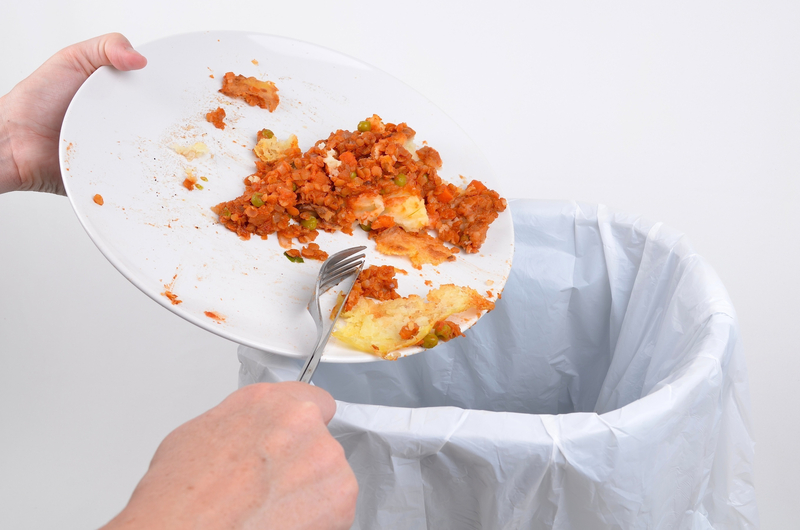Comprehensive Approaches to Reducing Home Waste
Reducing home waste is more than a trend--it's a vital practice for preserving our environment, saving money, and improving our quality of life. As the world's population grows and urbanization accelerates, households are generating increasing amounts of waste. However, with the adoption of comprehensive home waste reduction strategies, individuals and families can significantly lower the amount of garbage they produce. This article explores practical, effective, and innovative approaches to minimizing domestic waste for a sustainable future.
Understanding the Importance of Home Waste Reduction
Every household contributes to the global waste problem, with an average family discarding tons of trash annually. Reducing waste at home not only conserves valuable resources but also helps divert materials from overflowing landfills. By rethinking consumption patterns and adopting eco-friendly habits, homeowners can play a major role in tackling environmental issues such as pollution, greenhouse gas emissions, and resource depletion.
Environmental Impact of Household Waste
- Landfill Overflow: The majority of household waste ends up in landfills, contributing to land degradation and groundwater contamination.
- Greenhouse Gas Emissions: Decomposing organic waste emits methane--a potent greenhouse gas that accelerates climate change.
- Resource Depletion: Excessive production of consumables requires extraction and processing of raw materials, which strains natural resources.
Societal and Personal Benefits of Reducing Waste
- Cost Savings: Minimizing waste can lower grocery, utility, and disposal expenses.
- Cleaner Living Spaces: Less clutter and fewer disposables mean a tidier, healthier home.
- Community Engagement: Being mindful about waste fosters community initiatives and shared sustainable practices.

Core Principles for Comprehensive Home Waste Reduction
There are several foundational principles that underpin _comprehensive approaches_ to minimizing household waste. By understanding and applying these, families can drastically shrink their environmental footprint.
The 5 Rs: Refuse, Reduce, Reuse, Recycle, Rot
- Refuse: Say no to unnecessary products, packaging, and single-use items to prevent waste from entering your home.
- Reduce: Buy only what you need, opt for products with minimal packaging, and prioritize quality over quantity.
- Reuse: Choose reusable alternatives to disposables, repair broken items, and repurpose materials creatively.
- Recycle: Sort and separate recyclables according to local guidelines to ensure materials are processed correctly.
- Rot: Compost organic waste such as food scraps and yard trimmings to return nutrients to the soil.
Practical Steps for Reducing Waste in Every Room
Adopting a comprehensive approach to reducing home waste involves analyzing waste generation by area. Here's how you can tackle waste room by room:
Kitchen
- Meal Plan: Planning meals ahead reduces food waste and unnecessary grocery purchases.
- Smart Shopping: Buy in bulk, avoid products with excess packaging, and bring your own bags and containers.
- Composting: Set up a kitchen compost bin for vegetable peels, coffee grounds, and eggshells.
- Reusable Products: Trade disposables for cloth napkins, glass containers, and beeswax wraps.
- Proper Storage: Use airtight containers to preserve freshness and prevent spoilage.
Bathroom
- Bulk Buying and Refills: Purchase toiletries in bulk or use refill stations to cut packaging waste.
- Eco-friendly Alternatives: Switch to bamboo toothbrushes, bar soaps, and washable makeup pads.
- Minimalism: Limit the amount of products in use; donate unused toiletries to shelters.
Living Room & Bedroom
- Digital Over Physical: Opt for digital subscriptions and e-books rather than paper magazines or books.
- Conscious Decor: Buy secondhand furniture, upcycle old items, and avoid fast-furniture trends.
- Donation and Selling: Regularly declutter and find new homes for unwanted items rather than discarding them.
- Energy Efficiency: Use energy-saving lamps and appliances to reduce energy waste.
Laundry Room
- Cold Washes: Wash clothes in cold water when possible to save energy.
- Eco-Friendly Detergents: Choose concentrates or plastic-free packs.
- Line Drying: Hang clothes to dry whenever feasible to minimize dryer use.
Outdoor Areas
- Composting: Establish a compost pile or bin for garden and food scraps.
- Rainwater Collection: Use rain barrels for watering plants instead of tap water.
- Native Plant Gardens: Landscape with local plants to reduce yard waste and the need for chemical fertilizers and pesticides.
Advanced Strategies for Home Waste Reduction
Smart Technology and Waste Reduction
Modern technology offers numerous tools to streamline home waste management. Consider these smart solutions:
- Smart Fridges and Apps: These can monitor expiry dates and suggest recipes to reduce food spoilage.
- Automated Composters: In-home composting units make processing kitchen scraps easy and odor-free.
- Online Marketplaces: Platforms for buying and selling secondhand goods extend product lifespans and minimize trash.
Zero Waste Lifestyles
The zero waste movement provides inspiration and practical tools for households seeking to minimize their impact. Some advanced zero waste ideas include:
- DIY Cleaning Products: Make your own cleaners with ingredients like vinegar, baking soda, and lemon juice to avoid single-use plastic bottles.
- Bulk and Package-Free Stores: Shop at stores that let you bring your own containers for groceries and household staples.
- Repair and Mend: Learn basic sewing and DIY repair skills to extend the life of clothing and appliances.
- Cloth Everything: From diapers to shopping bags, swapping disposables for cloth reduces household trash significantly.
Community Initiatives and Circular Economy
A comprehensive home waste reduction approach often extends beyond the household, connecting with local and global communities:
- Participate in Community Composting: For those without yard space, look for shared or municipal composting programs.
- Engage in Tool Libraries: Borrow tools and appliances rather than purchasing new ones for infrequent use.
- Support Circular Economy: Choose products from companies that prioritize recycled materials and take-back programs.
- Neighborhood Swaps: Organize or join swaps for clothes, toys, and books to keep items circulating locally.
Navigating Challenges in Home Waste Reduction
While the benefits of reducing waste at home are clear, many people encounter obstacles along the way. Common challenges include:
- Inconvenience: New habits can take time to establish, and sometimes eco-friendly options are less accessible.
- Cost: Some sustainable products have higher upfront costs, though they typically save money in the long term.
- Lack of Awareness: Not knowing which items are recyclable or compostable can hinder efforts.
To overcome these barriers, start small, educate yourself on local recycling guidelines, and celebrate each success. Building a sustainable, low-waste lifestyle is a journey, not an overnight transformation.

Measuring and Maintaining Progress
Language such as "reduce, reuse, recycle" is easy to adopt, but true change comes from tracking progress over time. Here are effective ways to stay on course:
- Waste Audits: Periodically analyze your household trash to identify opportunities for further reduction.
- Set Goals: Establish specific, achievable targets, like reducing weekly landfill waste by 25%.
- Involve the Family: Assign roles and reward eco-friendly behaviors to encourage participation from all members.
- Educate and Motivate: Stay informed about new waste reduction techniques and share successes with friends and neighbors.
Conclusion: Embracing a Comprehensive Waste Reduction Mindset
Reducing home waste comprehensively isn't about perfection; it's about conscious, consistent effort. By understanding the impact of household waste and adopting comprehensive strategies for waste reduction, every family can contribute to a cleaner, greener planet. Small changes--like composting food scraps, switching to reusable products, or engaging with local waste initiatives--add up to create significant, long-term benefits.
Start your journey towards a zero waste home today! Remember, every choice matters, and together, we can make a substantial difference for our communities and the Earth.
```